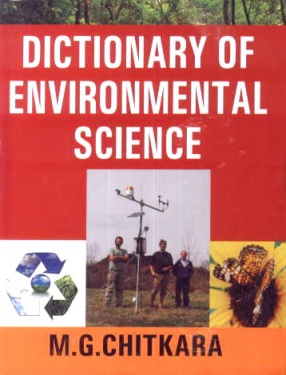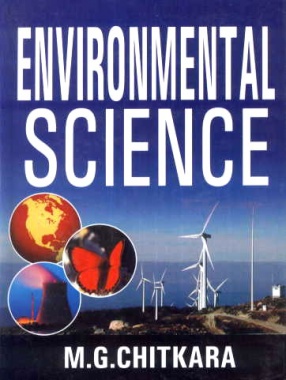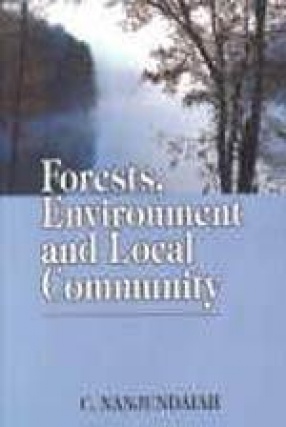There has been a long-standing need for a comprehensive compendium of terms relating to environment, ecology and pollution. In writing a compendium, the author’s first concern was to meet the needs of students, research scholars and environmentalists. When a compendium dictionary of this kind is being compiled, it becomes essential to depend upon the work of many authorities and seek the advice of colleagues, to all of whom the author is deeply indebted.
Man is increasingly becoming aware of the influence and impact of environment on his well being and very survival. The environmental science has become an important and indispensable branch of biological sciences, embracing several disciplines of science.
Man has changed the atmosphere rivers, lakes, oceans, rocks and soil. Many living forms are destroyed because they cannot quickly adapt to new conditions. Our genetic make-up cannot adapt to a changing environment such as rise of carbon dioxide, or to a reduced oxygen content in the air we breathe. We cannot develop resistance to toxic effects of many poisonous materials, we are poisonous materials, we are pouring in the atmosphere. The changes in the environment are undoubtedly important because of their effect on living beings. Saving the environment does not mean that man must give up the modern technology. But man must learn to live with in the nature’s cycles.
However, for the man economic growth has turned out to be his new religion. Nature in this new religion is regarded as a commodity and the value of the rivers is judged by megawatts of electricity these can generate and the water they can supply to never satisfying thirst of industries, commercial agriculture and expanding cities. The Governments also look towards these rivers as source of revenue earners and permit them and their civilizations to die. Our mountains, rivers and civilizations are dying but we are not noticing. Arnold Tyonbee, the world famous historian said: Most of civilizations died 200 years before they know the died. However, because of the efforts of environmentalists, the Governments are beginning to take ensures to clean air and water, and to save many species that might become extinct in time to corns, and changes are being made in the use of earth in an attempt to preserve the natural environment. The trouble is that the task of protecting the environment is so gigantic that much more still remains to be done. Mahesh Chandra Mehta, Goldman’s Award and Magsaysay Award earner says. In India it is not the Ministry of Environment or the Pollution Control Boards which are controlling pollution but the Supreme Court.








There are no reviews yet.